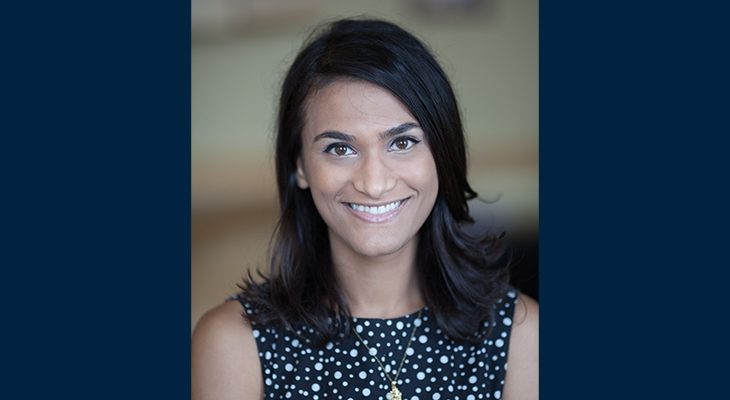An Epidemiologist’s Plea: Focus on the Collective
July 10, 2020

Dr. Farah Qureshi is a social epidemiologist who studies the early life origins of social inequities in chronic disease. Her research examines the interplay between young people’s social environments, emotional well-being, and cardiometabolic health. In addition to conducting population health research, she develops innovative pedagogies for public health education at the high school, college, and graduate levels focused on health equity. Farah holds a doctorate in social epidemiology from the Harvard T.H. Chan School of Public Health and a master’s degree in child health and development from the Johns Hopkins Bloomberg School of Public Health. You can follow her on Twitter: @fqureshi_epi
As an epidemiologist, I see life as a never-ending battle of wills between the individual and the collective.
On the one hand, we live each day with a myopic focus on ourselves: our responsibilities, our needs, our desires, our struggles, our triumphs…they are completely consuming. And sometimes life is so heavy that we have no choice but to tune out the noise of the world just to get by. So, we burrow in on ourselves in a sort of desperate act of self-preservation, and though we know life is much larger than the tiny speck of Earth we occupy, that’s okay.
On the other hand, this life that feels so unique, convoluted, and specific to our own individual experience is patterned in powerful and predictable ways by forces much larger than ourselves. Inequitable social and political structures that devalue and dehumanize Black lives. The long arm of history knocking at our doors and reminding us that we’re far from done. The perpetuation of toxic gender norms that continue to harm individuals the world over. Systems of power and privilege that tragically dictate the circumstances in which we live and die.
As a public health professional, I work to protect and promote the well-being of individuals by focusing on the collective: the communities where we live, work, learn, and play; the nations we call home and the global society we share. The common thread that unites this field is a commitment to the notion that health is not a privilege entitled to the highest bidder, but is a fundamental human right afforded to all. Through epidemiology, I quantify inequitable patterns of health and disease in the population so they can be changed. In theory, this may sound simple, but in practice, not so much.
Over the past few months, we watched the challenges inherent in this mission play out in the midst of both a global pandemic and renewed outrage over racial injustice in America. As a largely individualistic society, it has been challenging to sustain collective action to protect each other, particularly for those who have not experienced the burden of either disease (COVID-19 or racism) firsthand. As a result, Black and Brown communities have borne an unspeakable burden of preventable disease and death.
I can’t help but see striking similarities between the public health challenges we face today and the mission to build communities of mutual respect among multifaith youth. In both, I see a common vision rooted in justice and equity, and in both, I see a desperate need to look beyond ourselves and act in each other’s interests, despite challenging circumstances.
I wish I knew how we can achieve this, but sadly, I don’t. All I know is that although life might feel like a battle of wills between the individual and collective, they’re not in opposition but rather two sides of the same coin. While there are many forces that conspire to drive us apart, we are all in this together, and the sooner we realize that the better off we’ll be.
Share
Related Articles
American Civic Life
Is This a Time for Bridgebuilding? 5 Leaders in Conversation
American Civic Life
The Interfaith Legacy of Muhammad Ali: “The Wise Man Changes”
American Civic Life
Faith Based Efforts Work in Vaccine Uptake: Now Let’s Make it Easy



